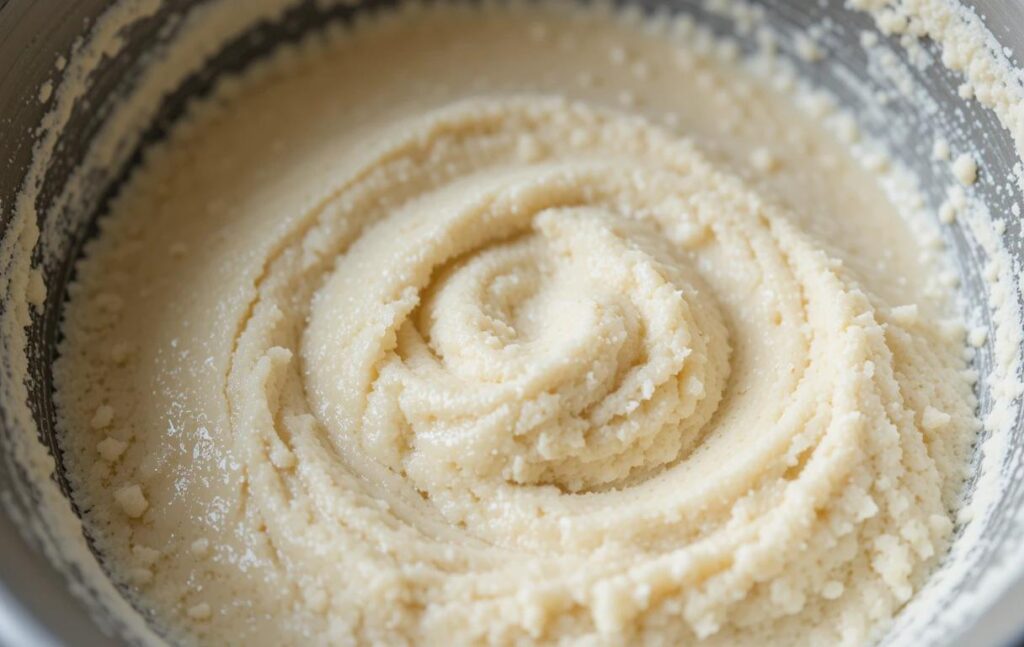Bread has long been a staple in diets worldwide, with sourdough gaining renewed popularity for its distinct flavor and potential health benefits. But is sourdough better for you than other bread? This question has intrigued health enthusiasts and food lovers alike, leading to in-depth comparisons of sourdough’s nutritional and digestive benefits over traditional options like white and whole-grain bread. In this article, we’ll explore the science, nutrition, and taste behind sourdough and help you decide if it’s the right choice for your diet.
What Makes Sourdough Unique?
Sourdough bread stands apart from other bread types due to its traditional preparation method, which relies on natural fermentation. Instead of using commercial yeast, sourdough is made with a starter, a mixture of flour and water teeming with wild yeast and beneficial bacteria. This process not only creates the signature tangy flavor but also contributes to its unique health benefits.
The Science Behind Sourdough Fermentation
Fermentation is the heart of sourdough bread. When the natural yeast and bacteria in the starter interact with flour, they break down gluten and starches, making the dough more digestible. These microbes also produce lactic acid, which gives sourdough its sour taste and acts as a natural preservative. The longer fermentation time allows for the development of complex flavors and a lighter texture compared to commercially baked bread.
- Benefits of Fermentation:
- Prebiotic Formation: The fermentation process creates prebiotics, which nourish healthy gut bacteria.
- Reduced Antinutrients: Phytic acid, a compound that hinders mineral absorption, is reduced during fermentation, enhancing nutrient bioavailability.
- Microbial Magic:
The symbiotic relationship between yeast and bacteria not only enhances the bread’s taste but also improves its shelf life without the need for artificial preservatives.
Sourdough’s Nutritional Profile Compared to Other Breads
Sourdough bread offers a well-rounded nutritional profile that often surpasses other bread types. While the exact nutrition depends on the flour used, most sourdough contains:
- Lower Glycemic Index (GI): Sourdough has a GI of 54 or less, meaning it causes a slower rise in blood sugar levels compared to white bread, which often exceeds 70.
- Higher Mineral Content: The fermentation process unlocks minerals like magnesium, zinc, and calcium, making them more bioavailable.
- Protein and Fiber: A typical slice contains around 4g of protein and 2g of fiber, though whole-grain sourdough has higher fiber content.
| Bread Type | Calories | Protein | Fiber | Glycemic Index |
|---|---|---|---|---|
| White Bread | 79 | 2.6g | 0.5g | 70+ |
| Whole Grain Bread | 82 | 3.5g | 2.5g | 55-65 |
| Sourdough (average) | 93 | 4g | 2g | 54 or less |
Digestive Benefits of Sourdough Bread
One of sourdough’s most praised attributes is its positive effect on digestion. Thanks to the fermentation process, sourdough contains beneficial bacteria and enzymes that promote gut health. For those with mild gluten sensitivity (not celiac disease), sourdough can often be easier to digest because the natural fermentation partially breaks down gluten.
- Improved Gut Health:
The lactic acid bacteria in sourdough contribute to a balanced gut microbiome, which is essential for overall health. - Reduced Bloating:
The fermentation process breaks down hard-to-digest components like fructans, making sourdough gentler on the stomach.
Blood Sugar and Glycemic Index
Unlike traditional bread, sourdough has a low glycemic index, meaning it releases glucose more slowly into the bloodstream. This is particularly beneficial for individuals managing diabetes or insulin resistance. Studies suggest that the unique structure of sourdough carbohydrates slows digestion, preventing spikes in blood sugar levels.
- Sourdough vs. White Bread:
White bread leads to rapid glucose absorption due to its high GI, while sourdough’s fermentation lowers its impact on blood sugar. - Sourdough vs. Whole Grain:
While whole-grain bread is also a healthy choice, sourdough’s fermentation process gives it an edge in terms of digestibility and GI levels.
Comparing Sourdough with Traditional Bread Types

To understand whether sourdough is better for you than other bread, it’s essential to compare it with popular alternatives like white bread, whole-grain bread, and gluten-free bread. Each type has its own merits and drawbacks, but sourdough’s fermentation process provides unique advantages.
White Bread: A Staple with Downsides
White bread has been a dietary mainstay for decades, but its popularity doesn’t necessarily equate to healthfulness. Made from refined flour, white bread undergoes heavy processing that strips away much of the bran and germ—key sources of fiber and nutrients.
- Nutritional Drawbacks:
- Low in fiber, leading to a rapid spike in blood sugar levels.
- Minimal protein content compared to sourdough or whole-grain bread.
- Often contains added sugar, preservatives, and bleaching agents.
- Taste and Texture:
White bread is soft and mildly sweet, but it lacks the depth of flavor found in sourdough.
Why Sourdough Wins:
Sourdough’s fermentation process adds complexity to its flavor and preserves its nutritional integrity, offering higher fiber and better digestion.
Whole Grain Bread: How Does It Stack Up?
Whole-grain bread is a healthier option than white bread, as it includes the bran, germ, and endosperm, retaining its natural fiber and nutrients. But how does it compare to sourdough?
- Pros of Whole Grain Bread:
- Rich in fiber, supporting digestive health and satiety.
- Contains essential nutrients like B vitamins and minerals.
- Lower glycemic index compared to white bread.
- Limitations:
- Whole-grain bread may still contain antinutrients like phytic acid, which can reduce mineral absorption.
- Its taste and texture can be less appealing to those who prefer lighter, fluffier bread.
Why Sourdough Wins:
The fermentation process in sourdough breaks down antinutrients, making minerals more bioavailable while offering a unique taste profile and easier digestibility.
Gluten-Free Bread: A Niche Option
Gluten-free bread has grown in popularity due to increased awareness of celiac disease and gluten sensitivity. However, its nutritional quality often falls short of expectations.
- Benefits of Gluten-Free Bread:
- Essential for those with celiac disease or severe gluten intolerance.
- Made from alternative flours like rice, almond, or tapioca.
- Challenges:
- Often lower in protein and fiber compared to sourdough or whole-grain bread.
- Can contain added sugars, fats, and preservatives to improve texture and flavor.
Why Sourdough Wins:
For individuals with mild gluten sensitivities (not celiac), sourdough’s natural fermentation process reduces gluten content, making it easier to digest while retaining superior nutritional value.
Taste, Texture, and Shelf Life
Sourdough’s unique fermentation process not only enhances its health benefits but also contributes to its distinct taste, texture, and longevity.
- Taste:
- Sourdough offers a tangy, rich flavor, unlike the mild sweetness of white bread or the earthy taste of whole-grain bread.
- Its flavor develops naturally during the fermentation process, free of artificial additives.
- Texture:
- Sourdough’s airy, chewy texture stands in contrast to the uniform softness of white bread and the denser feel of gluten-free bread.
- Shelf Life:
- Thanks to lactic acid, sourdough stays fresh longer without artificial preservatives.
- It resists mold better than other bread types.
Why Sourdough Stands Out
Sourdough’s balance of taste, nutrition, and digestibility makes it a versatile choice. While other bread types serve specific dietary needs, sourdough consistently excels in offering health benefits with a gourmet touch.
Health Benefits of Sourdough Bread

Sourdough bread isn’t just a culinary delight—it also packs a punch when it comes to health benefits. From promoting gut health to enhancing nutrient absorption, sourdough’s unique properties set it apart from other bread types. Let’s explore its impact on overall well-being.
Rich in Probiotics and Prebiotics
The fermentation process used in sourdough bread production promotes the growth of beneficial bacteria, which can act as probiotics and prebiotics. These microbes play an essential role in maintaining a healthy gut.
- Probiotics:
While sourdough doesn’t retain live probiotics after baking due to high temperatures, the lactic acid bacteria produce metabolic byproducts that benefit gut health. - Prebiotics:
Sourdough is rich in prebiotics—fibers that feed beneficial gut bacteria. This contributes to a balanced microbiome, improving digestion and immunity.
Gut Health Fact:
A healthy gut microbiome has been linked to improved mental health, better digestion, and reduced inflammation.
Better Nutrient Absorption
One of sourdough’s key advantages is its ability to enhance nutrient absorption. This is largely due to the fermentation process, which reduces antinutrients like phytic acid.
- Phytic Acid Reduction:
In traditional bread, phytic acid can block the absorption of important minerals like iron, calcium, and magnesium. Sourdough fermentation breaks down phytic acid, making these nutrients more bioavailable. - Enhanced Mineral Intake:
Sourdough bread contains significant amounts of minerals, including:- Magnesium, which supports muscle and nerve function.
- Zinc, vital for immune health and healing.
- Calcium, essential for strong bones and teeth.
Sourdough’s Role in Digestive Health
For many people, sourdough bread is easier to digest than other bread types. This is especially true for those with mild gluten sensitivities or those prone to digestive discomfort after eating traditional bread.
- Partially Broken Down Gluten:
During fermentation, enzymes break down some of the gluten, making sourdough gentler on the stomach.- Note: Sourdough is not gluten-free and is unsuitable for individuals with celiac disease.
- Reduced FODMAPs:
Fermentation reduces fermentable oligosaccharides, disaccharides, monosaccharides, and polyols (FODMAPs), which can cause bloating and discomfort in sensitive individuals.
Stabilizes Blood Sugar Levels
Sourdough bread’s low glycemic index helps prevent sharp spikes in blood sugar levels, making it a healthier choice for people with diabetes or those looking to maintain steady energy levels.
- How It Works:
- The fermentation process alters the structure of carbohydrates in the bread, slowing their digestion.
- This gradual release of glucose helps maintain stable blood sugar levels.
- Clinical Evidence:
Studies have shown that sourdough bread elicits a lower postprandial glucose response compared to white bread, making it a valuable option for individuals managing diabetes or insulin resistance.
Did You Know?
Foods with a low glycemic index are linked to reduced risks of heart disease and obesity.
Weight Management and Satiety
Sourdough bread can be a helpful addition to weight management plans due to its effect on satiety. Its high fiber and protein content keep you feeling full longer, reducing the likelihood of overeating.
- Fiber Content:
Whole-grain sourdough options contain more fiber, further promoting satiety and digestive health.- A single slice of sourdough provides around 2g of fiber, with even more in whole-grain versions.
- Slow Digestion:
The fermentation process slows down carbohydrate digestion, providing sustained energy without sudden hunger pangs.
Why Sourdough Outshines the Rest
From supporting gut health to stabilizing blood sugar and improving nutrient absorption, sourdough offers a wealth of health benefits. Its traditional preparation not only enhances its nutritional profile but also provides a unique taste that makes healthy eating a pleasure.
FAQs About Sourdough Bread
Sourdough bread often raises many questions, from its health benefits to its preparation process. Here are some frequently asked questions and their answers to help clarify why sourdough might be better for you than other bread.
1. Is sourdough bread good for weight loss?
Yes, sourdough bread can be a good option for weight management. Its higher fiber content promotes satiety, reducing the likelihood of overeating. Additionally, its low glycemic index provides steady energy, helping to avoid sudden hunger pangs.
- Tip: Opt for whole-grain sourdough to maximize fiber intake and promote weight loss.
2. Can people with gluten sensitivity eat sourdough bread?
Sourdough bread is often easier to digest for those with mild gluten sensitivity due to its fermentation process, which partially breaks down gluten. However, it is not gluten-free and is unsuitable for individuals with celiac disease.
- Important Note: For those with severe gluten intolerance, it’s best to consult a healthcare professional before including sourdough in your diet.
3. Does sourdough bread contain probiotics?
While sourdough fermentation involves probiotics, the baking process kills live probiotic cultures. However, the byproducts of fermentation, such as lactic acid, still provide benefits for gut health by creating a prebiotic-rich environment.
- Takeaway: Sourdough contributes to gut health even without live probiotics.
4. Is sourdough better for diabetics?
Yes, sourdough bread is a better choice for diabetics compared to white or refined bread. Its low glycemic index helps stabilize blood sugar levels and reduces the risk of glucose spikes.
- Advice: Pair sourdough with protein and healthy fats, such as eggs or avocado, for a balanced meal that further supports blood sugar control.
5. How does sourdough compare to whole-grain bread?
While both are healthy options, sourdough’s fermentation process gives it a unique edge. It reduces antinutrients like phytic acid, enhances mineral absorption, and improves digestibility. Whole-grain bread, however, may contain more fiber than some sourdough loaves.
- Best of Both Worlds: Whole-grain sourdough combines the benefits of both bread types.
6. Can sourdough bread help with bloating?
Yes, sourdough bread can reduce bloating for many people, especially those sensitive to FODMAPs or gluten. Its fermentation process breaks down hard-to-digest compounds, making it gentler on the stomach.
- Pro Tip: Look for long-fermentation sourdough to maximize its digestive benefits.
Common Myths About Sourdough Bread
- Myth 1: Sourdough is always healthier than other bread.
- Fact: While sourdough has many benefits, its healthiness depends on the ingredients used. Whole-grain sourdough is generally more nutritious than white sourdough.
- Myth 2: Sourdough is gluten-free.
- Fact: Sourdough contains less gluten than traditional bread but is not gluten-free.
- Myth 3: All sourdough bread is made the traditional way.
- Fact: Some store-bought sourdough uses shortcuts and commercial yeast, which reduces its health benefits. Always check labels for authentic sourdough.
Conclusion: Is Sourdough the Right Choice for You?
Sourdough bread offers a compelling combination of flavor, nutrition, and digestibility that sets it apart from other bread types. Its traditional fermentation process not only enhances its taste but also provides a host of health benefits, making it an excellent choice for those seeking a healthier alternative to refined bread.
Why Choose Sourdough?
Here’s a quick summary of why sourdough might be the best option for you:
- Improved Digestibility: The fermentation process breaks down gluten and FODMAPs, making sourdough easier to digest than other bread.
- Gut Health Benefits: Though it doesn’t contain live probiotics, sourdough is rich in prebiotics and supports a healthy gut microbiome.
- Lower Glycemic Index: Its ability to stabilize blood sugar levels makes it a great option for diabetics and those managing their weight.
- Enhanced Nutrition: The reduction of antinutrients like phytic acid improves the absorption of essential minerals such as magnesium, zinc, and calcium.
- Natural Ingredients: Authentic sourdough is made with simple ingredients, free from preservatives and artificial additives.
When to Consider Other Options
While sourdough has many advantages, it may not be suitable for everyone:
- For Gluten-Free Diets: Sourdough contains reduced gluten but is not safe for individuals with celiac disease or severe gluten intolerance. Gluten-free bread is a better option in such cases.
- Whole-Grain Benefits: If fiber intake is a priority, whole-grain bread might be more beneficial unless you opt for whole-grain sourdough.
Making the Most of Sourdough
To maximize the benefits of sourdough bread:
- Choose Whole-Grain Sourdough: This option combines the fiber of whole grains with the benefits of fermentation.
- Pair with Nutritious Toppings: Enhance your meal with healthy additions like avocado, eggs, or hummus.
- Avoid Processed Varieties: Always check labels to ensure your sourdough is made using traditional methods without commercial yeast or additives.
- Experiment in the Kitchen: Making sourdough at home allows you to control ingredients and enjoy fresh bread with optimal nutritional value.
The Final Verdict
So, is sourdough better for you than other bread? In most cases, yes. Its balance of health benefits and delicious flavor makes it a standout choice, particularly for those looking to improve digestion, stabilize blood sugar, and enjoy a nutrient-rich diet. While other bread types have their merits, sourdough offers a unique combination of taste and nutrition that’s hard to beat.
Chef John’s Sourdough Bread
Related Recipes
- “Tuna Tomato Sauce Pasta Recipe“: A tomato-based recipe showcasing another way to use tomatoes.
- “Baked Chicken Fettuccine Alfredo with Broccoli“: Another comforting dish that can be complemented with tomato-based sauces.
Ingredient-Focused Content
- “Lions Mane Mushroom Recipe“: Suggest using a tomato gravy as a flavorful addition for plant-based dishes.
Cooking Techniques and Enhancements
- “Mango Habanero Salsa“: Explore complementary uses of sauces and gravies for flavor diversity.
Storage and Reuse Tips
- “Sous Vide Recipes“: Recommend tomato gravy as a sauce for sous vide-cooked meats or vegetables.
- “Ocean Spray Cranberry Sauce Recipe“: Guide readers on making and storing sauces, including tomato gravy.

